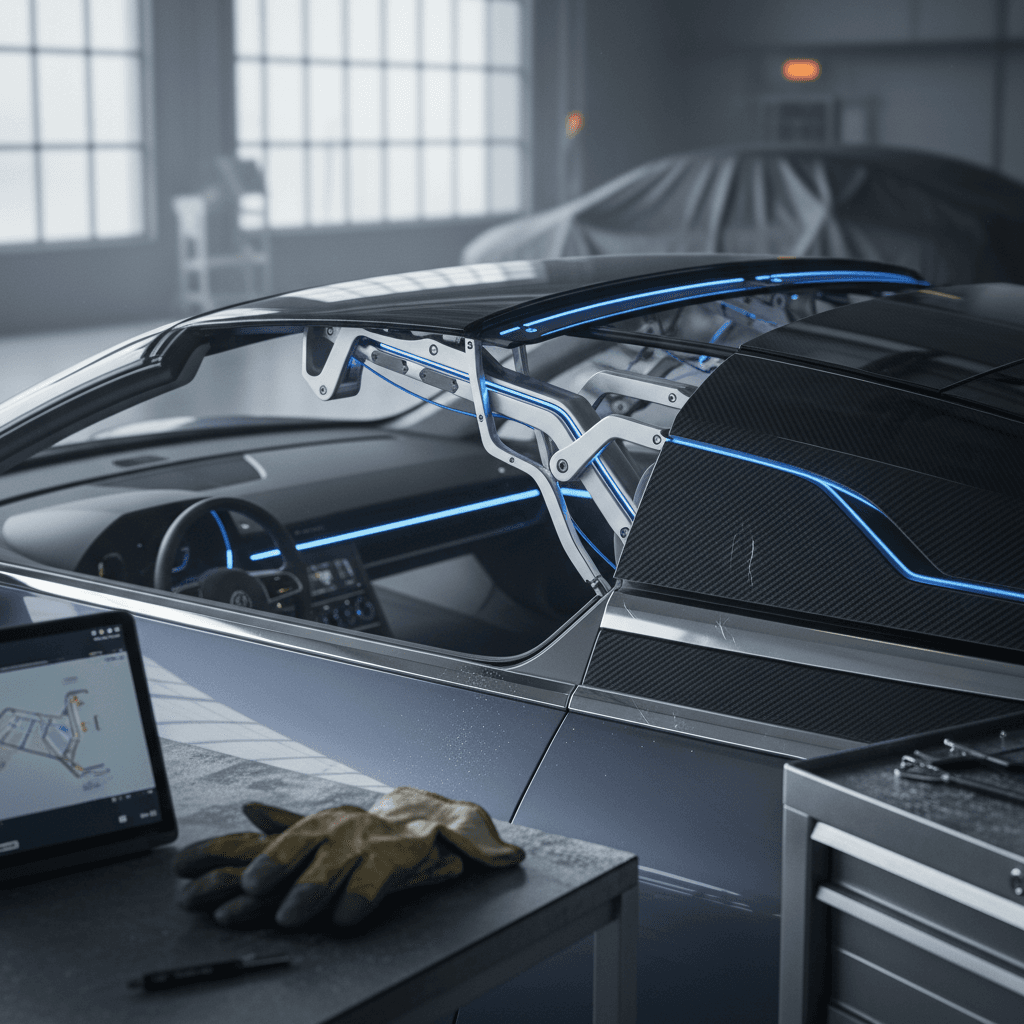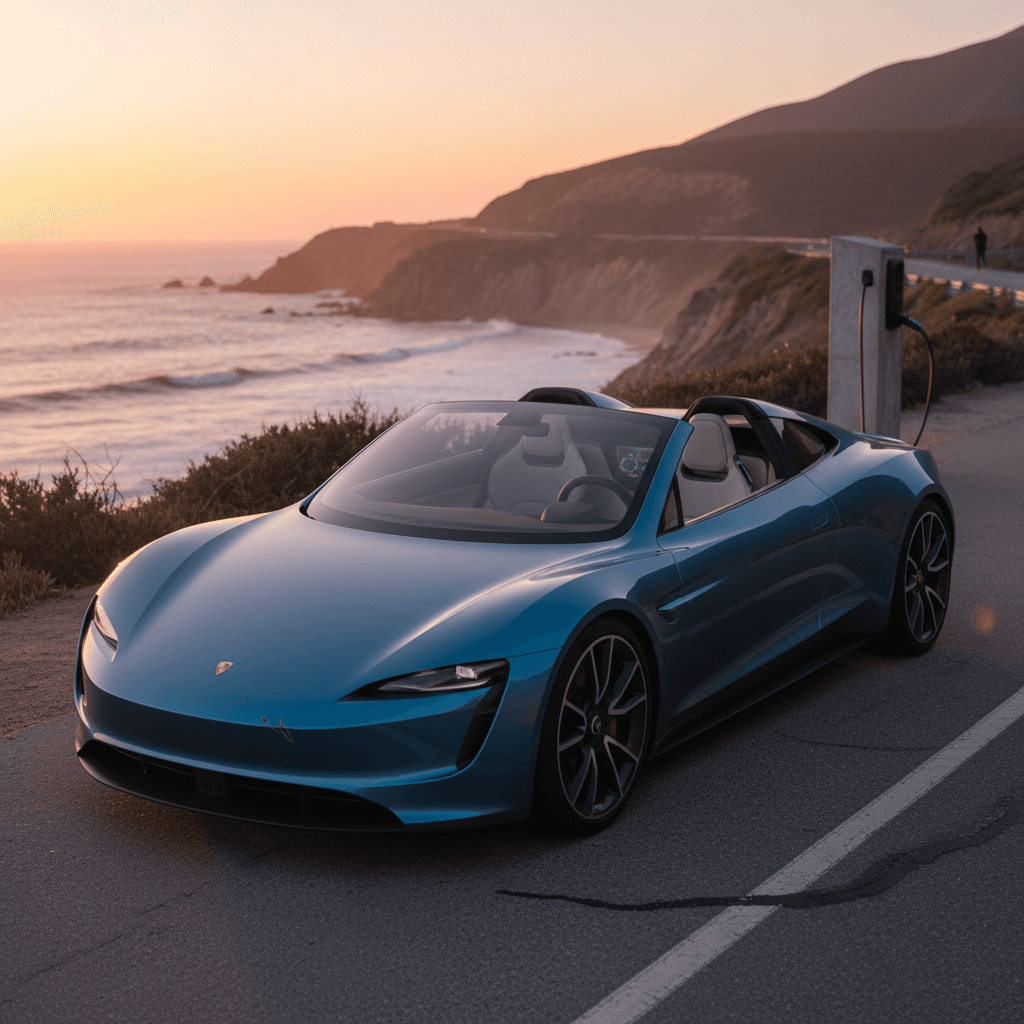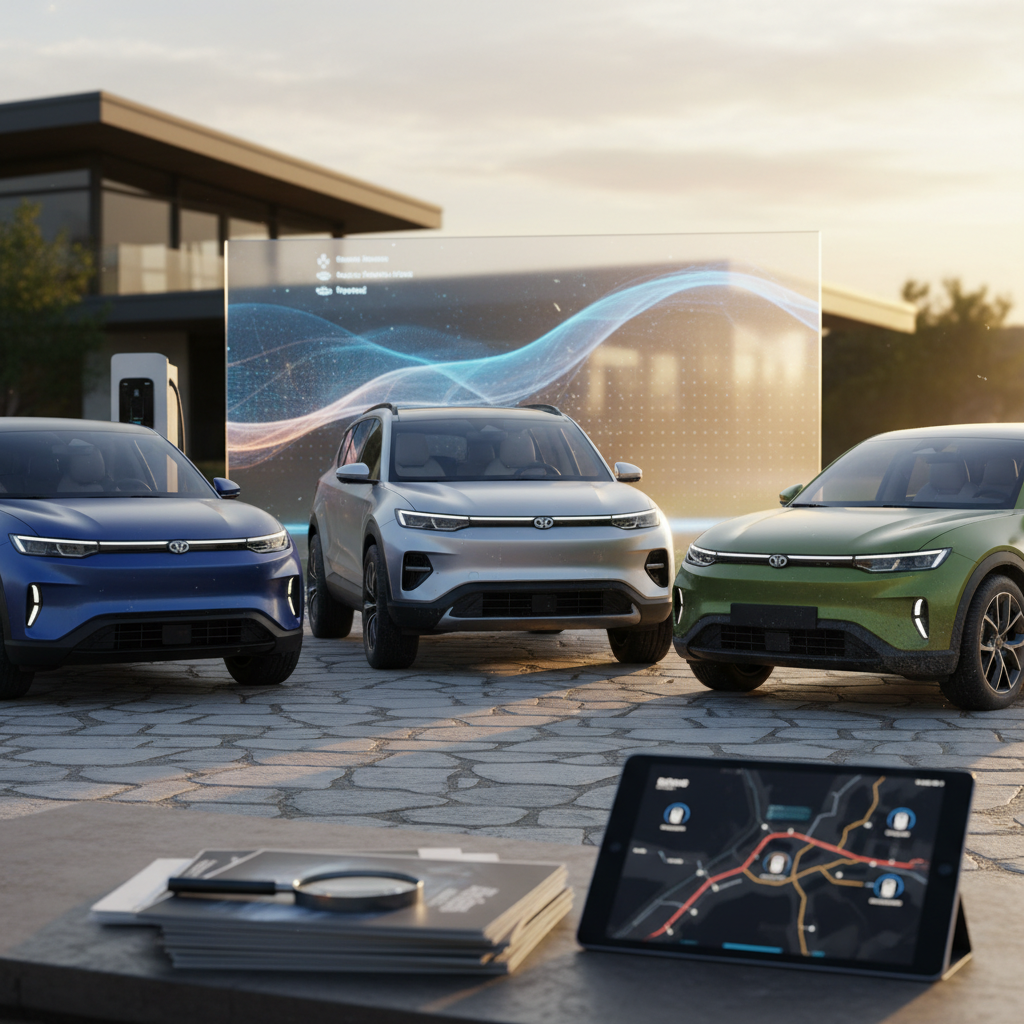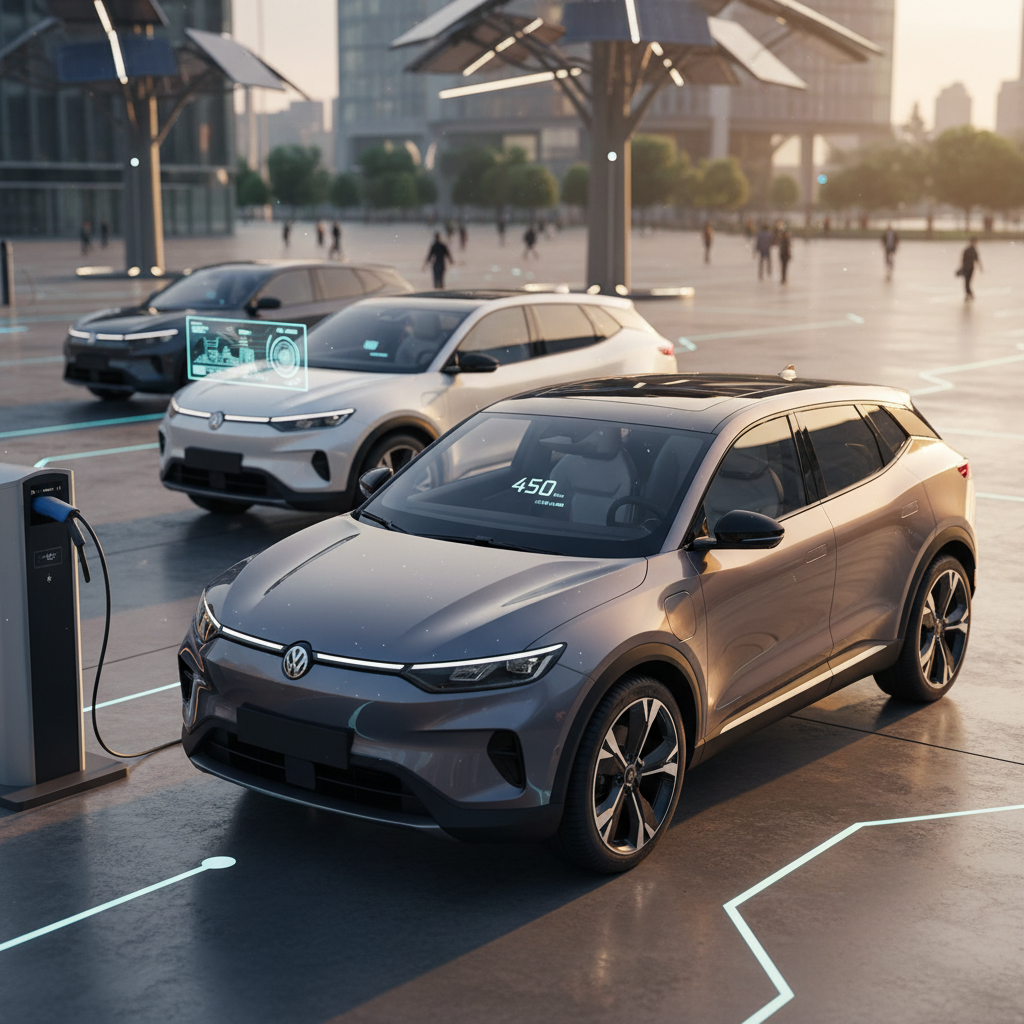If you type “convertible electric car” into a search bar, you’d expect a buffet of open‑top EVs ready for a test drive. In 2025, the reality is still pretty lean. A few true electric roadsters exist, a handful of concepts are stealing headlines, and a lot of shoppers are wondering whether to wait or buy something else now.
Quick reality check
Why Convertible Electric Cars Are Still So Rare
On paper, a convertible electric car seems like a no‑brainer: instant torque, quiet cruising, and a big blue sky overhead. In practice, engineers have been wrestling with a rough combination: heavy battery packs, strict crash rules, and buyers who expect both sports‑car agility and long range.
The engineering puzzle behind an electric convertible
Why automakers have mostly stuck with fixed‑roof EVs so far
Battery weight
EV packs are heavy. Remove the roof, and you lose a key structural piece that helps keep the body stiff.
To compensate, engineers add reinforcements in the floor and sills, which piles on even more weight.
Safety & rigidity
Modern crash standards demand a very rigid passenger cell. A fixed roof is an easy structural beam.
Without it, engineers have to get clever, and expensive, to meet rollover and side‑impact standards.
Range & performance
More weight and more drag (top down) mean less range or a bigger battery.
That can push price and weight past what most buyers will tolerate in a small, fun car.
Why this matters for you
What Actually Counts as a Convertible Electric Car?
Before you fall in love with a press photo, it helps to pin down what you’re really looking for. Automakers throw around words like roadster, cabriolet, targa, and panoramic roof, but they don’t all mean the same thing.
True convertibles & roadsters
- Soft‑top or hard‑top roof that folds away fully.
- Open cabin experience: rear seats (if any) are exposed to the sky.
- Classic examples in the gas world: Mazda Miata, Porsche Boxster, BMW 4‑Series Convertible.
- Electric reality in 2025: very few, and mostly two‑seat sports cars.
“Open” but not quite convertibles
- Targa roofs: a removable panel over front seats; strong roof structure remains.
- Big panoramic sunroofs that slide or tilt, lots of light, some fresh air, but not fully open.
- SUVs with giant glass roofs can feel airy, but won’t give you that wind‑in‑your‑hair, hat‑flying‑off sensation.
Shopping tip
Convertible Electric Cars You Can Buy Now (and Where)
Depending on where you live, you may have exactly one true production convertible electric car to choose from, and it might not be at your local dealer yet. Here’s how the global landscape looks in late 2025.
Current production electric convertibles and roadsters
These are the main fully electric convertibles either on sale now or actively rolling out, plus one key discontinued model that shaped the segment.
| Model | Body style | Seats | Status in 2025 | Key notes |
|---|---|---|---|---|
| MG Cyberster | Soft‑top roadster | 2 | On sale in China, Europe, UK, India; expanding to more markets | First modern mass‑market electric roadster, serious performance, premium pricing. |
| Smart EQ fortwo cabrio | Soft‑top city cabriolet | 2 | Discontinued in 2024, used only | Tiny city EV with a fabric top; range and performance are modest by today’s standards. |
| Tesla Roadster (1st gen) | Targa‑style sports car | 2 | Discontinued; early 2010s | Historic but rare and aging; more of a collectible than daily‑driver choice now. |
| Low‑volume conversions | Various | 2–4 | Occasional specialist builds | Aftermarket EV swaps or coach‑built projects; high cost, limited support. |
Availability varies by region; always confirm with a local dealer before you plan a purchase or trip.

What about U.S. shoppers?
Why you don’t see many electric convertibles on the road
Future Electric Convertibles and Roadsters to Watch
The good news is that designers haven’t given up on drop‑top EVs. Several high‑profile convertible electric car concepts point to where the market could be heading in the next five years.
Headline‑grabbing electric convertible concepts
Not yet in your driveway, but worth watching if you’re willing to wait
Next‑gen Tesla Roadster (promised)
Originally teased years ago, the new Tesla Roadster has been repeatedly delayed.
Specs have included wild claims about sub‑2‑second 0–60 times and huge range, but until production starts, treat it as a concept with a fan club.
Cadillac Sollei
A full‑size, ultra‑luxury electric convertible concept based on the hand‑built Celestiq.
Think boulevard cruiser more than track toy, if it reaches production, expect a sky‑high price and very low volumes.
Other design studies
Various brands have shown open‑top EV showcars, everything from tiny beach buggies to sleek GTs.
Most are brand statements, not product promises, but they keep the idea alive inside the design studios.
How to read the tea leaves
Pros and Cons of Choosing a Convertible Electric Car
Let’s assume you can get your hands on an electric roadster, or at least a used open‑top EV. Is it a smart choice, or a very expensive impulse buy? As with any niche car, the answer lives in the trade‑offs.
Why enthusiasts love the idea
- Instant torque, no drama: EVs deliver smooth, silent shove that feels even more vivid with the roof down.
- Perfect for short joyrides: Weekend backroad runs or coastal drives are where these cars shine.
- Less exhaust, more nature: You can hear the wind and the birds instead of a droning exhaust note.
- Future‑proof cool factor: When there are only a few on the road, you’re driving something genuinely special.
Why the spreadsheet might say no
- Price per mile of practicality: Two seats, small trunks, and premium pricing make them tough daily drivers.
- Weather & climate limits: In hot, cold, or rainy regions, the roof may be closed more often than you’d like.
- Range trade‑offs: Extra weight and drag mean you’re usually sacrificing some range versus a fixed‑roof cousin.
- Insurance and repair costs: Low‑volume convertibles can be pricier to insure and fix.
Buying a Used Electric Sports Car or Convertible Alternative
If you’re in North America and dreaming of a convertible EV, a used purchase, or a near‑equivalent like an EV with a huge opening roof, may be your most realistic path for the next few years. This is where a structured, data‑driven approach matters more than ever.
Smart steps for shopping used EV sports cars and quasi‑convertibles
1. Decide what “open‑top” really means to you
Is a full fabric roof a must, or would a big panoramic roof satisfy the same craving for light and air? Being honest here widens your options dramatically.
2. Prioritize battery health above all else
In any used EV, especially a fun, possibly hard‑driven one, the battery is the heart of the car. With Recharged, every vehicle comes with a <strong>Recharged Score</strong> and verified battery‑health diagnostics so you’re not guessing about range.
3. Check real‑world range, not just the original EPA number
A low‑mileage early EV might still have enough range for weekend fun, but you don’t want to find out the hard way that your favorite loop pushes the pack to its limits.
4. Look hard at tires, brakes, and suspension
Sports‑car owners tend to “enjoy” their cars. Inspect wear items closely and budget for replacements; a fresh set of high‑quality tires can transform how a performance EV feels.
5. Make sure charging fits your life
A niche sports EV that only charges on a rare connector standard or lacks fast‑charging support can be frustrating. Confirm that your home setup and local charging networks are friendly to the car you’re eyeing.
6. Lean on expert help
With a rare body style or older tech, it’s worth having an EV‑focused specialist in your corner. Recharged’s EV experts can help you interpret battery reports, charger compatibility, and fair pricing before you buy or trade in.
Where Recharged fits in
How Range and Charging Change When You Go Top‑Down
Even if you find the electric convertible of your dreams, physics hasn’t taken the day off. Roof design, weight, and aerodynamics all show up on your range readout and your charging routine.
- With the top up, most modern soft‑top roadsters are reasonably slippery through the air, but rarely as efficient as an equivalent coupe or sedan.
- Drop the top and drag increases, especially at highway speeds, exact numbers vary, but expect range to fall fastest above about 50–60 mph.
- Carrying a heavy folding roof mechanism and added body reinforcements means you’re moving more mass with every stoplight sprint.
- Fast‑charging speeds are usually similar to the fixed‑roof version that shares the same battery and electronics, but preconditioning (warming or cooling the pack before fast charging) matters just as much on an open‑top EV.
Plan your “roof‑down” range conservatively

Checklist: Should You Wait for an Electric Convertible?
With so few true convertible EVs on sale, many shoppers are stuck in limbo: wait for the perfect roadster, or buy a more practical EV now and revisit the idea later? This quick gut‑check can help.
A 7‑question gut check
1. How critical is the roof to your happiness?
If you’ve always owned convertibles and the idea of a solid roof makes you sigh, it may be worth waiting or cross‑shopping gas convertibles while the EV world catches up.
2. Do you already have another practical car?
If this EV will be your only vehicle, a niche two‑seat roadster is a tough daily companion. If it’s your fun‑car stablemate, you can live with more compromise.
3. What’s your climate really like?
If you live where winters are long or summers are scorching, count the number of truly pleasant top‑down days. That can turn the emotional math upside down.
4. How far do your favorite drives actually go?
Look at your usual fun routes on a map. If they’re short, range compromises are easier to swallow. If your ideal day is a 300‑mile mountain blast, you’ll feel every missing kilowatt‑hour.
5. Are you comfortable with early‑adopter risk?
First‑wave niche products sometimes have quirks: limited dealer networks, parts delays, rapidly improving next‑year versions. If that kind of uncertainty bothers you, a mainstream EV might be a better first step.
6. What’s your budget ceiling?
Most current and upcoming electric convertibles land firmly in luxury‑car territory. Be honest about whether that fits, especially once you add taxes, destination, and insurance.
7. Could a used EV + big sunroof scratch the itch now?
There’s nothing wrong with buying a solid, practical EV today, with a huge opening roof, and keeping an eye on the convertible market. By the time the right car lands near you, you’ll already be comfortable living electric.
FAQ: Convertible Electric Cars
Frequently Asked Questions About Convertible Electric Cars
The Bottom Line on Convertible EVs
If you’ve been daydreaming about a convertible electric car, you’re early, but not wrong. The mix of instant torque, quiet cruising, and open sky is exactly what makes electric sports cars so appealing. The trouble is that, in 2025, the market is still tiny, fragmented, and often expensive, especially in the United States.
That doesn’t mean you have to shelve the idea. You can enjoy an engaging EV today, maybe with a huge opening roof, and treat it as your bridge to the day when open‑top EVs are more common. Or, if a convertible is non‑negotiable, you might keep your current car a bit longer while you watch how the next wave of electric roadsters develops.
Either way, you don’t have to navigate this alone. Recharged is built to make EV ownership simple and transparent, from the first search to the final signature. When you’re ready to talk about the fun side of electric driving, convertible or not, an EV specialist can help you find something that fits your life today and keeps the door open for that dream roadster tomorrow.



